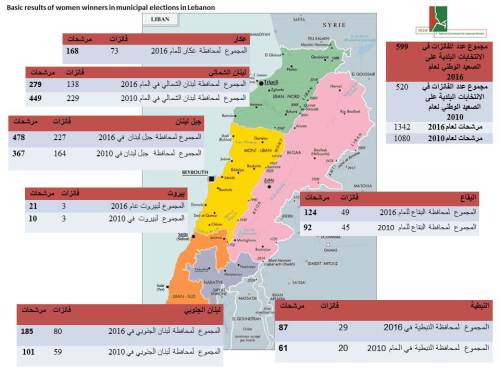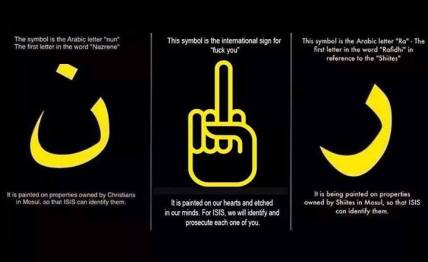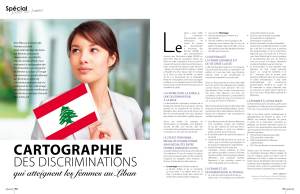Baby formula pushers draw parents’ ire
BEIRUT: It took four attempts before Sarah Boudiab found a pediatrician who didn’t pressure her to introduce infant milk-replacement formula into her baby’s diet. Since her child was 5 or 6 months old, in offices often decorated with advertisements for formula, doctors variously expressed surprise that Boudiab continued to breastfeed and beseeched her to introduce formula feeding.
“Breastfeeding past one year is only in underdeveloped countries,” she said one pediatrician told her, while another, using a growth chart she knew to be outdated, warned her: “Your baby isn’t growing well enough.”
“You get scared [when you hear such things],” Boudiab told The Daily Star, noting that a mother less well-informed, less determined or with a less supportive spouse may have succumbed to the pressure to switch to bottle feeding. One pediatrician even recommended a particular brand of milk replacement to Boudiab.
“You feel like pediatricians are not doctors – they are more like marketing agents,” she said.
Although international health experts have long since resolved that in the majority of cases breastfeeding is preferable to bottle feeding, rates of the former remain low in Lebanon.
According to the most recent World Bank data available, only 15 percent of Lebanese babies are exclusively breastfed between birth and the age of 6 months old.
The reasons for this are manifold. A 2011 study by Mona Nabulsi, a pediatrician at the American University of Beirut’s Medical Center, identified lack of awareness about breastfeeding and little preparation for it as contributory factors.
However, parents like Boudiab believe that the active and widespread promotion of milk replacement formulas plays a significant role too.
In addition to traditional advertising methods, allegations abound that formula companies enter into deals with medical professionals and institutions to secure promotion for their products.
Iman El-Zein, a member of the Lebanese Association for Early Childhood Development, told The Daily Star that among such arrangements is the contribution of equipment to hospitals in exchange for the distribution of milk samples upon the discharge of new mothers.
The distribution of formula samples upon discharge undermines new moms’ confidence in breastfeeding, she said.
Linda Shaker Berbari, a mother of two, echoes this, saying such promotions and practices often lead mothers to believe that by feeding formula they are choosing the “better option.”
When her children were born, one of the first things she was given was a packet including formula samples, Berbari said.
“Had I not been aware of the dangers of formula, I wouldn’t have known it was important for me to say ‘no,’” she added.
Some of the risks associated with formula milk for babies include: obesity, asthma, allergies, lower IQ and cognitive development, respiratory infections and diabetes.
Aware of the pros and cons of formula or not, what many are completely oblivious to is that that since 2008 it has been clearly prohibited under Lebanese law to market or promote infant or follow-up milk replacement products, as well as things required for their administration – bottles, teat, etc. – for children aged up to 36 months.
It is this comprehensive piece of legislation, Law 47/2008 – which even stipulates how the products are labeled – that parents behind an Internet campaign launched in May are trying to to get implemented.
The movement began when regular Light FM listener and new mom Sara Luis Hanna was irked that a competition on one of the station’s shows was introduced as sponsored by Apta Junior, an infant formula produced by Danone.
“It was like a stab in the back by Light FM,” Hanna, who had recently become aware of the legislation governing formula promotion and advertising, told The Daily Star.
Already an attendee of pro-breastfeeding La Leche League’s meetings and active on online mom forums, she decided to highlight the issue by founding her own Facebook group.
“Stop formula companies from marketing their products in Lebanon” has attracted more than 300 members on Facebook since May and claims a number of victories for its cause, including Light FM’s cancelation of its contract with Danone.
Almost daily, the group’s members use the forum to highlight violations of Law 47/2008 – from magazine adverts, to billboards, to formula companies’ logos adorning waiting rooms.
They have also established a breastfeeding blog to raise awareness about the legislation and the risks of formula feeding, and have launched a petition to pressure the Lebanese government and the Health Ministry to implement the law.
The group also credits itself with the calling off of a nutrition workshop for moms organized in conjunction with the formula company Novalac.
While Danone did not respond to an email from The Daily Star querying its promotional activities for Apta Junior, Novalac’s communication department promptly replied when contacted.
“Novalac was planning to make a workshop with a dietitian addressed to mothers regarding babies’ nutrition,” the email said, but the event “was not focused on milk in any way.”
Novalac explained that it canceled the workshop “to be able to clarify the issue with [the Health Ministry] in order to get their approval to avoid any further inconveniences.”
“We will never reconsider the workshop unless we have [the ministry’s] approval,” the company said.
The Facebook campaigners have also been in communication with the Health Ministry, exchanging emails with its Director-General Walid Ammar. He told the activists a meeting had taken place with the formula producers and assured them he was working to strictly implement the law.
But while Hanna said the response from the ministry thus far had been “good,” she cautioned that she remained “a little skeptical.”
“We’ll see how far we have come in a couple of months or years,” she said.
Zein, who contributed to the drafting of the law, is even more reserved in her hopes for its implementation.
One of the causes of the widespread violation of the law is “the political situation and the weakness of the Health Ministry,” she said, noting that with its current caretaker status the government is unlikely to be particularly active on the issue.
Zein also pointed out that the ministry had not yet set punishments for violators of the law, and was “postponing and disregarding meetings of the [National] committee [for the promotion and protection of breastfeeding]” the formation of which is provided for by the law in question.














 Les enquêteurs estiment également que le chef des services des renseignements des FSI, en contact avec de nombreux politiques, était sans doute sur écoute! Et que ses moindres faits et gestes étaient observés. Ainsi les organisateurs de l’attentat ont pu savoir ou et comment agir, quand il est arrivé d’Europe, quand il a quitté l’Europe pour revenir au Liban sans prévenir personne. Aucun convoi de sécurité ne l’attendait à l’aéroport. Il avait ses raisons, relevant plutôt de la sphère personnelle. Mais toute arrivée sensible à Beyrouth ne passe jamais inaperçue. « . Quand on atterrit à Beyrouth, ça se sait toujours… Il y a donc eu aussi sans doute tout au long d’un parcours presque balisé par les tueurs des hommes chargés d’une surveillance visuelle. Du premier signalant le départ de la cible jusqu’au dernier actionnant le détonateur après avoir été prévenu par une « vigie », ayant une vue dégagée sur la voiture de Wissam el-Hassan, s’engageant dans la rue de l’attentat » selon une source très proche de l’enquête.
Les enquêteurs estiment également que le chef des services des renseignements des FSI, en contact avec de nombreux politiques, était sans doute sur écoute! Et que ses moindres faits et gestes étaient observés. Ainsi les organisateurs de l’attentat ont pu savoir ou et comment agir, quand il est arrivé d’Europe, quand il a quitté l’Europe pour revenir au Liban sans prévenir personne. Aucun convoi de sécurité ne l’attendait à l’aéroport. Il avait ses raisons, relevant plutôt de la sphère personnelle. Mais toute arrivée sensible à Beyrouth ne passe jamais inaperçue. « . Quand on atterrit à Beyrouth, ça se sait toujours… Il y a donc eu aussi sans doute tout au long d’un parcours presque balisé par les tueurs des hommes chargés d’une surveillance visuelle. Du premier signalant le départ de la cible jusqu’au dernier actionnant le détonateur après avoir été prévenu par une « vigie », ayant une vue dégagée sur la voiture de Wissam el-Hassan, s’engageant dans la rue de l’attentat » selon une source très proche de l’enquête.













